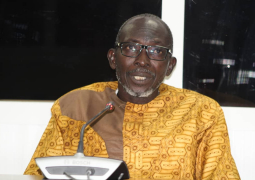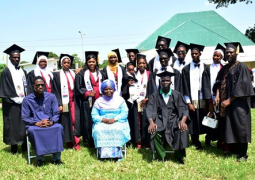
Mr. Jawara made these remarks during an interview with reporters on the sidelines of the validation workshop of The Gambia’s draft Long-Term Climate-Neutral Development Strategy 2050 (LTS) document last Friday organised by the Climate Change Secretariat of MECCNAR and key stakeholders.
In an effort to put long-term goals of the Paris Agreement into practice, countries are invited to formulate and communicate “long-term, low greenhouse gas emission development strategies” (LT-LEDS), also referred to as Long Term Strategies (LTS). These are visionary plans for achieving low-carbon, climate-resilient societies out to 2050.
The LTS came about after the Paris Agreement in 2015 when all parties made a commitment to develop Long-Term Strategies to become carbon neutral by 2050 which means by 2050, the greenhouse gases emitted would be net zero.
Each country was supposed to have their LTS developed by 2020 but due to Covid-19, most countries could not meet the deadline. As at 13 September 2022, only 52 countries had developed and submitted their LTS to the United Nations Framework Convention on Climate Change.
He noted that the LTS has been valued and has a modelling aspect where two scenarios – the business as usual which is; “if we do not do anything to combat greenhouse gas emissions, and the scenarios if we implement measures to adapt and mitigate climate change bringing down emissions to net zero.”
DPS Jawara stated that: “The Gambia’s NDC2 is the only NDC that fulfilled the Paris Agreement of 1.5 degree,” adding that “the LTS builds on the NDC2, albeit having it costed.”
He added that the country currently needs 1.3 billion US dollars to combat climate change. However, he said the amount may increase because from now to 2050 is a long time, and other factors such as inflation would lead to adjustments.
“The amount may seem high but the cost of the alternative, i.e. doing nothing is even higher. We have seen the effects of the recent flash floods with people losing their lives, and having their livelihoods destroyed in a matter of hours,” he pointed out.
“The Gambia only contributes 0.01 percent of greenhouse gas emission in the world and yet look at the impact of climate change on The Gambia,” he said, adding that countries that acknowledged being the main emitters of greenhouse gases mainly the economic superpowers have pledged to help finance mitigation and adaptation interventions in poorer and more affected countries like The Gambia.”
The LTS and other similar national plans would be used as a basis to fund raise from the domestic market and international community.
He also expressed delight that the Islamic Development Bank was present at the validation, saying they have shown great interest in the LTS and he believes they may be one of their first development partners to put their money where it should be in the fight against climate change.





